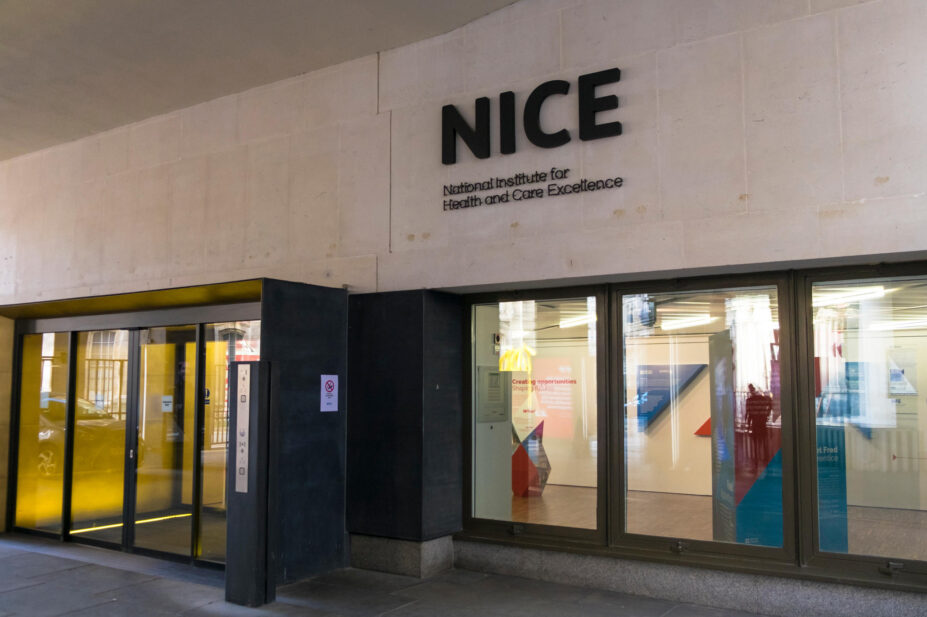
PAL Stock / Alamy Stock Photo
Changes to how the National Institute for Health and Care Excellence (NICE) operates, outlined under the NHS ten-year health plan, should result in faster medicines recommendations and wider access to health technology, NICE has said.
In its ‘Fit for the future: ten-year health plan for England‘, published on 3 July 2025, the government said that, by April 2026, NICE will start working with the Medicines and Healthcare products Regulatory Agency (MHRA) on a “new joint process, supported by information sharing and joint scientific advice, that will boost the speed of decisions and cut administrative burdens for the system and industry”.
This new process is intended to “make sure patients in England are able to access medicines faster”, the plan said.
In its response to the plan, NICE said it “will work more closely with the MHRA to speed up evaluations and ensure patients get safe, effective treatments sooner”, adding that enhanced collaboration between the two bodies would “increase coordination and reduce duplication, ensuring MHRA and NICE decisions happen as close together as possible”.
The MHRA is the UK’s medicines and medical devices regulator, while NICE provides guidance on the use of medicines for the NHS in England. NICE cannot release guidance for the use of any product until the MHRA has given its authorisation.
In a policy paper published in March 2025, the government said that it planned to improve alignment between MHRA decisions and NICE guidance. This would include tackling information sharing between the two bodies, and piloting a joint process that would lead to “concurrent marketing authorisation (from the MHRA) and technology appraisal (from NICE), enabled by enhanced data sharing and collaboration between technical teams”, the government said.
NICE also said the ten-year plan will help reduce the “postcode lottery” of access to health technology. The plan said that, currently, there is “no national pathway to prioritise and nationally fund the highest impact healthtech”, which leads to significant variation in uptake nationwide.
To help address this, the plan said that, from April 2026, NICE’s technology appraisal process will be expanded to include some devices, diagnostics and digital products. This would “focus on those [technologies] that meet the NHS’s most urgent needs”.
Once a product is recommended in a NICE technology appraisal, the NHS is legally obliged to fund it.
NICE said it welcomed the approach to “reducing the postcode lottery for high impact healthtech”, adding that it would “offer some high impact digital tools, diagnostics and medical devices the same funding guarantee as medicines”.
The ten-year plan also promises a single national formulary for medicines within the next two years, saying that the current localised process for getting new medicines to patients is “bureaucratic and creates a postcode lottery”.
A formulary oversight board will be created which will, with the support of NICE, look at the clinical and cost effectiveness of products in the formulary. Prescribers will be “encouraged” to use products ranked highly in the formulary but will retain clinical autonomy as long as they prescribe in line with NICE guidance, the plan said.
Mark Samuels, chief executive of Medicines UK — which represents the interests of generics and biosimilars manufacturers and suppliers — said that “the development of a single national formulary presents an opportunity to support clinicians in prescribing in the most clinically appropriate and cost-effective way for the benefit of patients independent of where they live in UK”.
“The details of how it is implemented will need to be carefully worked through,” he added.
Tase Oputu, chair of the Royal Pharmaceutical Society’s (RPS’s) English Pharmacy Board, said “the plan for MHRA and NICE to create a joint taskforce to approve medicines is welcome”.
“We look forward to the government outlining in its upcoming Life Sciences Strategy how it will resource and enable pharmacists to deliver new treatments and support the best use of innovative medicines,” she continued.
“The establishment of a single formulary can improve cost control and reduce the postcode lottery of access to medicines. A one-size-fits-all approach also reduces flexibility and it’s essential that clinicians retain autonomy to exercise their own judgement to benefit individual patients.“
Rachel Power, chief executive of the Patients Association, also welcomed the plans to speed up access to medicines.
“However, faster approval alone isn’t enough. New treatments must also be made available in the NHS without delay and patients must be supported to access them equitably. We’d like to see continued focus on removing barriers that stop patients from benefitting from innovation once medicines are approved,“ she said.
You may also be interested in

CCA calls for next Welsh government to accelerate digital access for pharmacies

GPs should have dedicated, monitored email address for pharmacy communications, says new contract
